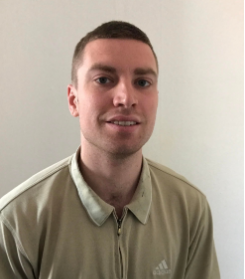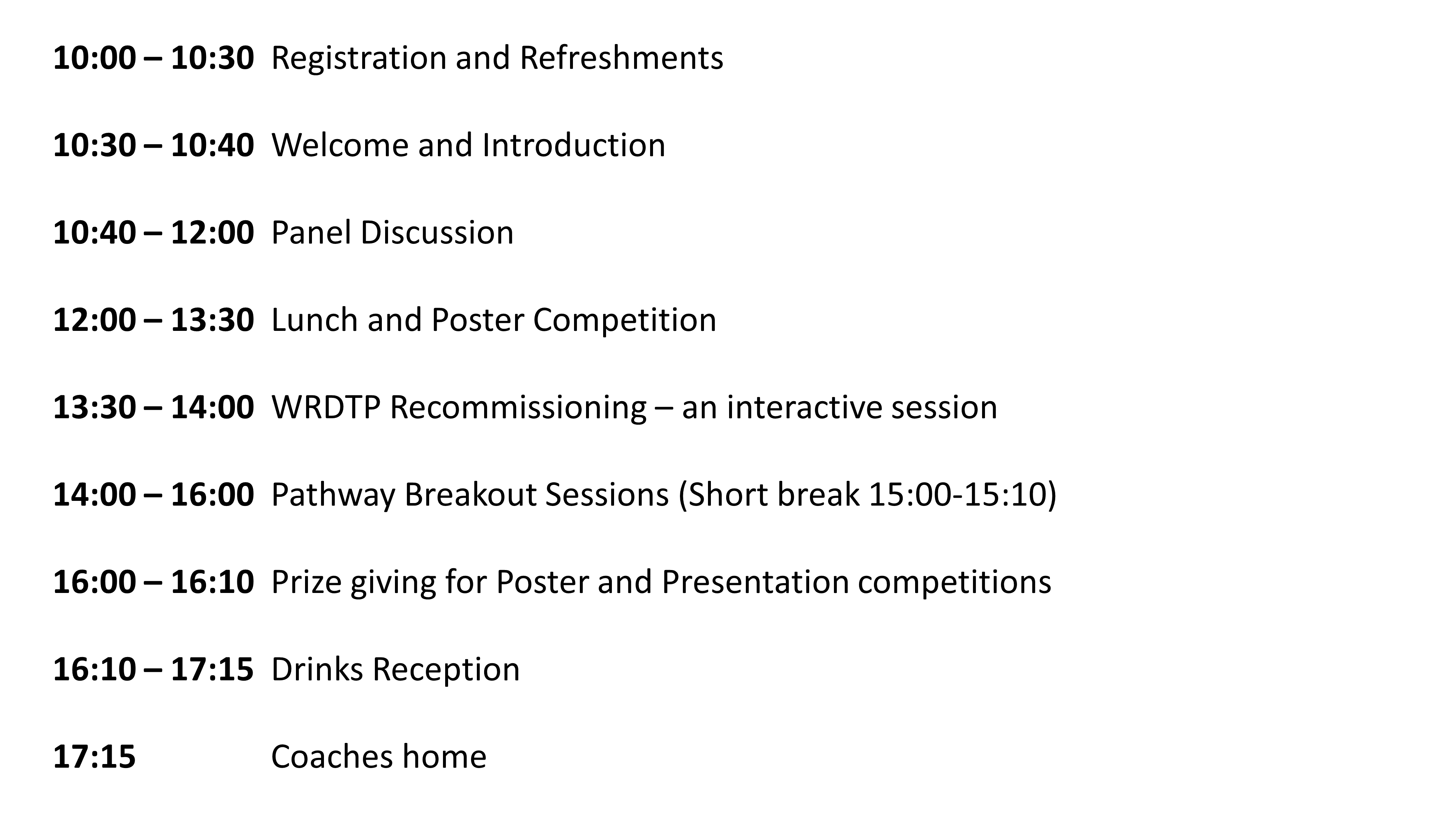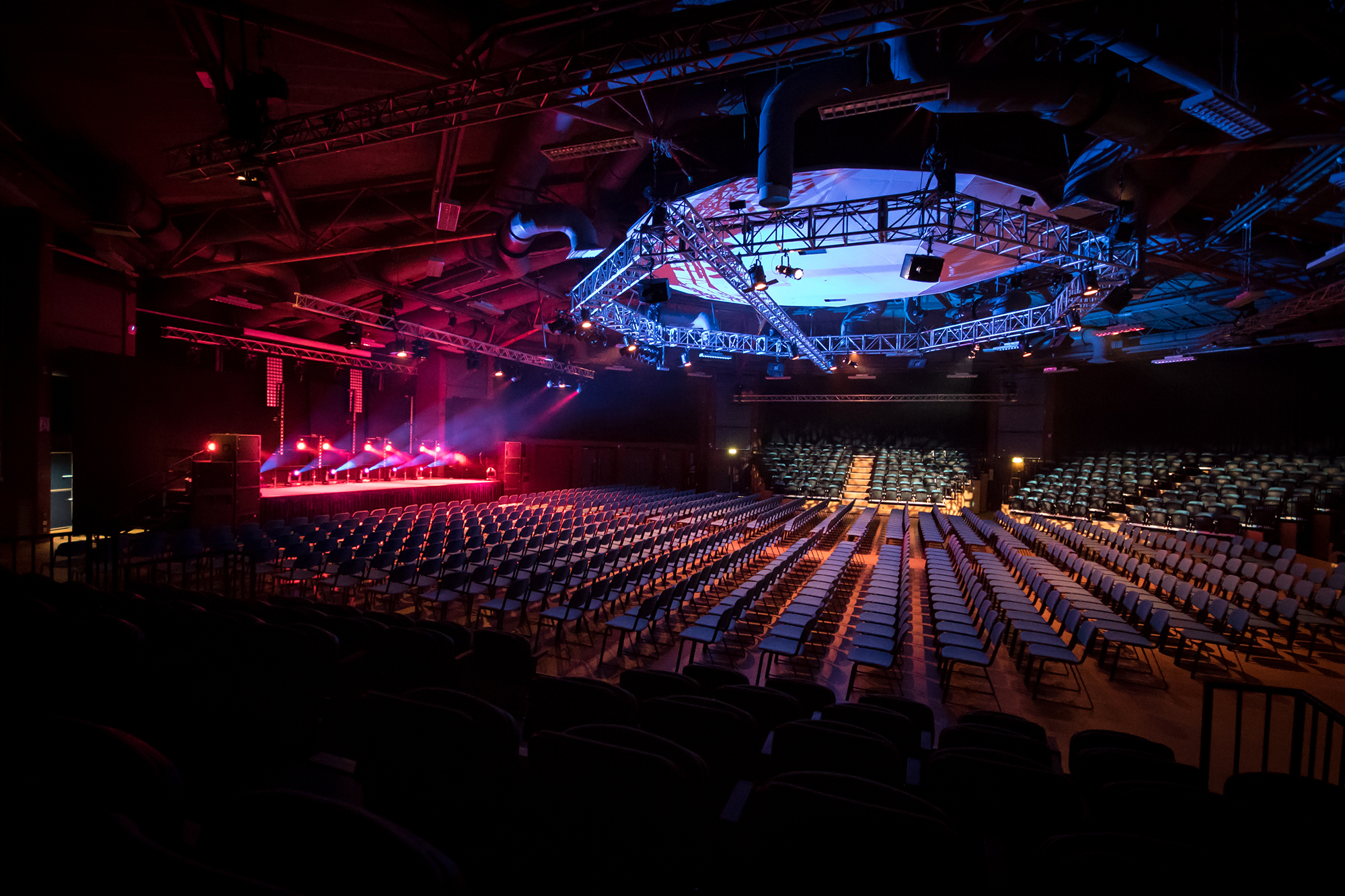
WRDTP 11th Annual Conference
The White Rose Doctoral Training Partnership holds its 11th Annual Conference at the University of Sheffield on the 21 June 2022. The conference is a great opportunity to network with other doctoral researchers, share your research experiences, find out more about the training on offer from the DTP Pathways and meet your Pathway Director. The theme for this year’s conference is The New Normal? Hybrid Futures Post-Covid.
The New Normal? Hybrid Futures Post-Covid
Covid has fundamentally changed the world in ways we don’t yet fully comprehend. It has raised questions about the use of data, trust in policy-makers and experts as well as wider social questions about structural health inequalities, the way we use cities, relationships between health and environmental quality, and how we continue to address wider issues – social justice, net zero transitions, securing human rights.
This conference provides an opportunity for us to reflect both upon what Covid has meant for Universities and researchers as we try to navigate research, study and the wider world of hybrid work but also what it means for our disciplines and the grand social challenges that we face.
Our opening panel will bring together academic and PGR experts to discuss their research on Covid. Afternoon sessions will then address the ways in which Covid has shaped the study and practice in pathway areas. You will also be offered the opportunity to share your views on the future of PGR training in the WRDTP in a session on the recommissioning of the Post Doctoral Training Partnerships.
Join us for the White Rose Social Sciences Doctoral Training Partnership annual conference on 21 June, where we will explore the role of social science research in local and global transformation.
Conference Speakers
In the morning, there will be a ‘Question Time’ style Panel of Researchers and academics…
They are:

Justin Robinson
Currently in the first year of a Politics PhD at the University of York, my research explores how we respond emotionally to the threats posed climate change, and how these emotional responses shape our political attitudes and behaviour.

Louise Tracey
Louise Tracey is a Senior Research Fellow in the Department of Education at the University of York. Her research focuses on early years, in particular children’s emerging language and literacy development. She has recently completed a study with Dr Claudine Bowyer-Crane (NEISR), Dr Sara Bonetti (EPI), Dr Dea Nielsen and Sarah Compton (University of York) on ‘The impact of the Covid-19 pandemic on children’s socio-emotional wellbeing and attainment during the Reception Year’ which, in itself, was also impacted by Covid.
Draft Programme

Well-being, Health and Communities (WHC) Pathway afternoon session
The afternoon session for WHC will be dedicated to presentations from selected Postgraduate Doctoral Researchers. Those who have submitted abstracts will be allocated slots of up to 10 minutes to present their work, followed by five minutes of questions. Presentations can be on any aspect of the PGRs’ research thus far, whether outlining research plans and questions, reporting methods and findings, or discussing ways in which it can contribute to theory and practice.
The session will conclude with a discussion of pathway challenges and successes, and ideas for future training activities.
Sustainable Growth, Management and Economic Productivity (SMP) Pathway afternoon session
CEL and SMP will be joining up for their afternoon sessions at the conference. In the first part of the afternoon selected Postgraduate Doctoral Researchers will deliver 10 minute presentations on their doctoral research, with time for questions and discussion. After the break, we will reconvene to hear from our PGRs how their research has had to adapt and change during the recent shift to online working over the previous two years, and how this has affected their original research plans. We will then discuss the implications for new training which could support the use of online/hybrid research and dissemination, gathering suggestions for events which the Pathways could provide in the coming year.
Education, Childhood and Youth (ECY) Pathway afternoon session
The afternoon session for ECY will be dedicated to presentations from our postgraduate researchers, who will be allocated 10 minute slots to present on any aspect of their research. We also plan to schedule a more open discussion on how working practices may have changed post-pandemic.
Security, Conflict and Justice (SCJ) Pathway afternoon session
“The politics of research funding”
This panel discussion will share both practical perspectives on applying for research funding as well as discussion of the overall funding landscape for Early Career Researchers in the UK. It will feature four speakers, including both early career and more senior researchers. Panelists will speak to their experience applying for grants and fellowships, as well as reflections on the overall state and direction of the research funding field. There will be ample time for questions and discussion.
Speakers:
Professor Charlotte Burns is director of the White Rose DTP and Professor of Politics at the University of Sheffield. She earned her PhD in Politics at the Unversity of Sheffield and has previously held an ESRC post-doctoral fellowship at Sheffield, a lectureship in EU politics at the University of Aberystwyth, and an RCUK fellowship in democracy and governance at the University of Leeds, and a senior lectureship in the Environment Department at the University of York. Her research focuses on the implications of EU membership or UK and EU environmental policy. She is co-founder and co-chair of the Brexit and Environment Network and is a co-investigator on an ESRC Governance after Brexit grant led by Dr Ruth Little from the Department of Geography, which will analyse the future development of agri-environmental policies.
Dr Hanne Cottyn is a research associate at the University of York Department of History and earned her PhD in History from the University of Ghent. She holds a fellowship from the ISRF for the research project The “more-than-human” history of a disappearing lake. Historicizing indigenous responses to socio-environmental change in and around Lake Poopó, Bolivia and was previously a postdoctoral associate on the NERC funded project “Integrating ecological and cultural histories to inform sustainable and equitable futures for the Colombian páramos“
Dr Richard McNeill-Wilson is a postdoctoral researcher at the Institute of Security and Global Affairs at the University of Leiden. He has previously held positions as a Max Weber Fellow (2021–2022) and Research Associate (2019–2021) at the Robert Schuman Centre for Advanced Studies, European University Institute, Florence (Italy). He is urrently working on the European Commission H2020-funded DRIVE project, Richard has also been Main Researcher for the H2020-funded Building Resilience against Violent Extremism and Polarisation (BRaVE) project, Project Co-instigator for the Erasmus+ project Counterterrorism and Safeguarding in response to Islamic State (CASIS) and advisor to numerous other European projects. He earned his PhD from the Institute of Arab and Islamic Studies at the University of Exeter.
Dr. Tristram Riley-Smith is Director of Research at the Department of Politics & International Studies, University of Cambridge, and External Champion and research integrator for transnational organised crime research at the UKRI Partnership for Conflict, Crime and Security Research (PaCCS). Before commencing his role as External Champion, Tristram spent over 25 years working as a specialist in defence, security and infrastructure protection in Whitehall. He was posted as a Counsellor to the British Embassy in Washington DC in 2002 and in recent years has established and run a Centre for Science, Knowledge & Innovation.
Cities, Environment and Liveability (CEL) Pathway afternoon session
CEL and SMP will be joining up for their afternoon sessions at the conference. In the first part of the afternoon selected Postgraduate Doctoral Researchers will deliver 10 minute presentations on their doctoral research, with time for questions and discussion. After the break, we will reconvene to hear from our PGRs how their research has had to adapt and change during the recent shift to online working over the previous two years, and how this has affected their original research plans. We will then discuss the implications for new training which could support the use of online/hybrid research and dissemination, gathering suggestions for events which the Pathways could provide in the coming year.
Data, Communication and New Technologies (DCT) Pathway afternoon session
The afternoon session for DCT will be dedicated to presentations. Those who have submitted an abstract will be allocated a full 10 minute slot to present their work. Presenters are strongly encouraged to take this opportunity to 1) practice their presentation skills, 2) seek feedback on any specific aspects of their work, and 3) share questions or doubts related to the work they are presenting. Each presentation will be followed by a dedicated 5-minute Q&A session.
The session will conclude with a brief pathway reflection on training activities going forward.
We look forward to seeing you and hearing about your research!
The DCT team
Civil Society, Development and Democracy (CDD) Pathway afternoon session
Details of the afternoon pathway session will be confirmed shortly
Event Delivery
The WRDTP Annual Conference will take place on a face to face basis, with sessions recorded and posted to the WRDTP VIRE (institutional log-in needed) for those unable to attend in person.
Background:
The WRDTP has carefully considered the balance of events this year to respond to student demand. We have some students who have complex health conditions and/or caring responsibilities that make attending face to face events either impossible or very challenging. But we also have students who have found lock-down very challenging from a mental health perspective and who are keen to realise the benefits of face-to-face engagement.
At the start of the year we consulted our PGR Forum and Training Directors to discuss how to navigate this challenging transitional period as we emerge from the pandemic. We decided to keep the vast majority of our training online, to trial hybrid events and to make our bigger set piece events (WRDTP Induction and Annual Conference) face-to-face but with session materials made available on-line. We will keep this under review over the coming year as better hybrid facilities become available and in response to student and staff feedback.
Please note: It is compulsory for ESRC funded students to attend at least one Annual Conference during their funded period.
Poster Exhibition Competition
All PhD researchers in the Social Sciences at the WRDTP partner universities are invited to present a poster about their research at the Annual Conference. You will have the opportunity to present your poster to delegates during the extended lunch period, and delegates will vote for a winner.
The winning poster will be awarded a £50 book voucher prize. 2 runner-up prizes of a £20 gift voucher will also be awarded.
Poster guidelines:
- All posters must be A0 size and include your name, contact details, university, department, funder and relevant logos, if appropriate.
- ESRC-funded students should note further branding guidance can be found here (Please note – you need to be logged into the WRDTP VIRE in order to view this page).
- The exhibitor must print their own poster and bring it to the conference where it should be given to WRDTP staff upon registering to add to the exhibition.
Deadline for submissions – 5pm, Tuesday 7th June 2022.
Present at your afternoon Pathway Panel
All PhD researchers in the Social Sciences at the WRDTP partner universities are invited to give a talk to their interdisciplinary Pathway Panel. Presentations should be approximately 10 minutes long.
The winning presentation in each Pathway will be awarded a £30 book voucher prize.
Deadline to submit presentation abstracts – 5pm, Tuesday 7th June 2022.








